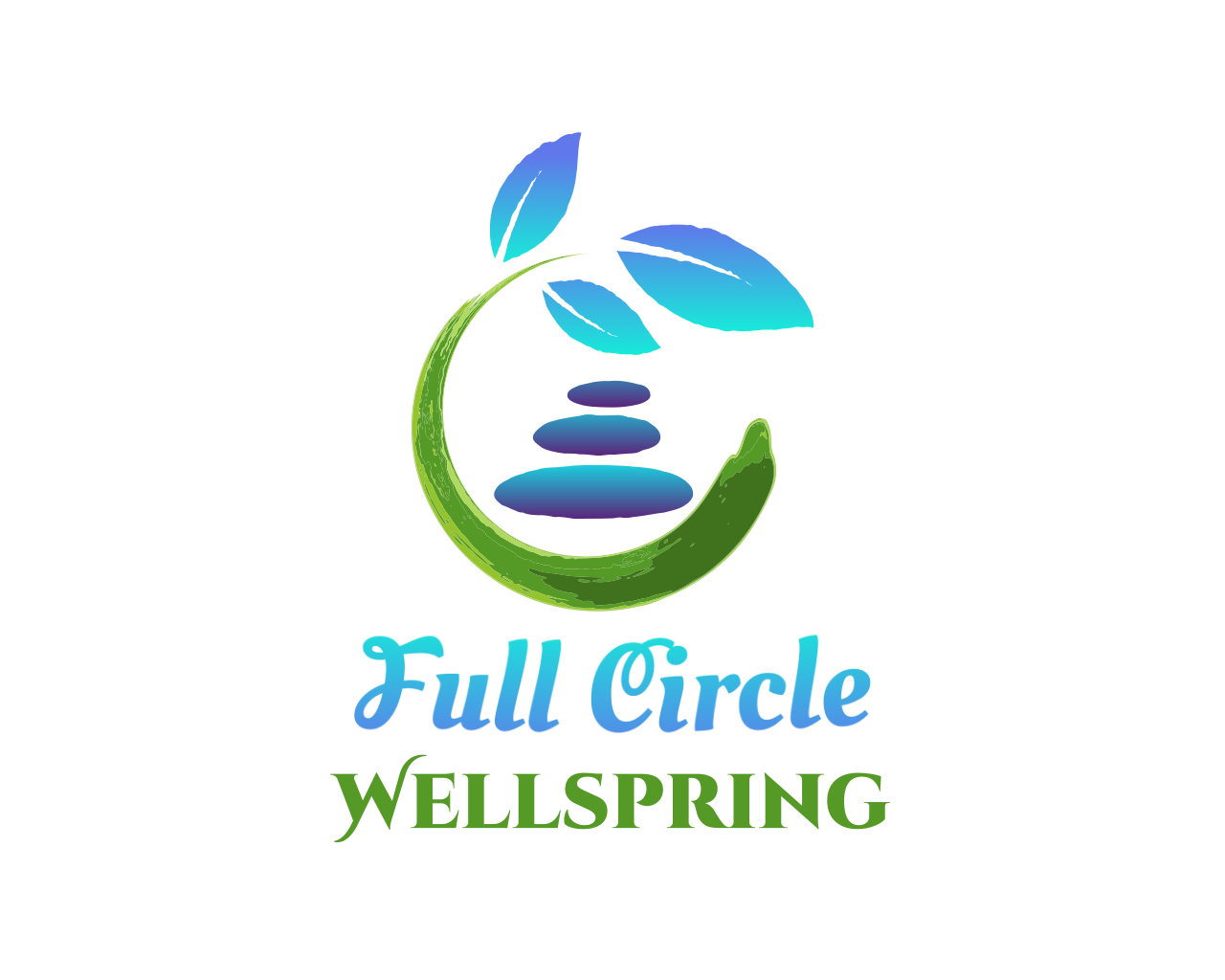Full Circle Fridays (ARCHIVES):
Trauma causes a disruption in our neuro pathways and can halt survivors from staying connected to themselves, others, and the world around them. They can abandon/exile parts of themselves behind a wall of shame and fear. Each Full Circle Friday post was geared toward learning about outside resources, adjunctive services, modalities, recommendations, etc for the trauma survivor to grow their toolbox for recovery.
For more (NEW) content (or to listen to these archived episodes) - check out the Podcast or the YouTube channel! Follow/subscribe so you never miss content!
Full Circle Fridays|Week 10: Jungian Philosophy
Author Note: If you prefer to listen or watch instead of or along with -
Check out the YouTube video and/or the Podcast audio.
Today I’d like to give a brief overview of Carl Jung and his contributions to the world of psychology. It’s worth taking a deeper look into his theories, philosophies, therapy, and archetypes. He contributed to a great deal of this generation’s way of thinking and of processing.
Carl Jung was born in Switzerland in 1875 but was alive in the generation before me. He died in 1961 after my parents were born. His perceptions are still being fleshed out, sometimes challenged, and slowly being adapted into modern therapy. I mention this because I’m not a hard-core Jungian follower, but I find him to be super insightful when diving into the world of trauma therapy and coaching. He’s being highlighted today on Full Circle Friday as an outside resource that I believe we can gain knowledge from, but I don’t necessarily go all in on every one of his concepts.
Jung is responsible for main concepts such as: the Collective Unconscious, personality archetypes, dream symbols, and the start of tying spirituality together with psychology. His father was a pastor, so he was very invested in religion and history. While I’m not driving down that road as a topic, I do believe that seeing the psyche as a mental, emotional, and spiritual realm is a really big deal when you are actively seeking out trauma recovery and are on a journey of psychological healing.
Briefly — the Collective Unconscious has been studied for decades now and has bled its way into modern psychology. It’s worth noting that Jung considered this an inherited aspect of all humans, similar to “nature v nurture” in my opinion. The Collective Unconscious was presented like the nature part of all new humans — born into a world that, without any experiences, gave us beliefs and human mindsets in a particular culture and are just assumed to exist. This was his main theory that ran throughout several of his book and other concepts.
From there, another branch of Jung’s contributions that still is at play today is his Dream Theory. He believed that the unconscious and subconscious realms of dreaming translate into images, narratives, answers, and ideas that can be used (when remembered and examined) to find healing in your conscious. This is a fascinating subject to me. I do feel like dreams have a way of showing and guiding. I even did my senior thesis paper on dream interpretation over 20 years ago! Earlier this week, in the Journal episode, I explained why I’m beginning to journal my dreams as well.
For trauma recovery healing and other psychological uses, I find Jung’s most important contribution to be that of the archetypes and personality work he did. Jung examined and categorized personality traits and was able to uncover a whole lot about their psychological functions. Two decades after Jung’s death, Myers-Briggs adapted a final set of personality traits and added them to Jung’s original three coupled traits. Then he created a personality test. If you have never taken a Myers-Briggs' personality test, you really ought to, in my opinion. As an INFJ, I highly recommend it. The insight alone from that will give you depth to your personal journey, healing, and understanding for how your personality works in this wild world.
These personality categories have been used to help people find healing within relationships by understanding theirs and their partner’s functioning roles, as well as learning styles based on your personality indicators and even your career and parenting style. These all stemmed from Jung’s original concepts and study of human function.
In Jungian philosophy, we find four main archetypes of human patterns and behavior: the Self, the Persona, the Anima, and the Shadow. Jung presented three components of Self — the ego, the personal unconscious, and the collective unconscious. The Self being the individual and the personal unconscious being your memories and life experiences.
There are also tests available to find your Jungian archetype and explanations of each to find out why it’s important to help you understand yourself. Beyond that, there are his philosophies which I think are worth a bit of studying, and now even a Jungian style therapy available. There are Jungian analysts and all kinds of complex ways to dive deeper into Carl Jung’s work — if you feel led to do so.
To close, here are a few of Jung’s quotes that I find very insightful and healing to my trauma recovering self:
“Everything that irritates us about others can lead us to an understanding of ourselves.”
“I am not what happened to me, I am what I choose to become.”
“The most terrifying thing is to accept oneself completely.”
“We cannot change anything unless we accept it.”
As you can see, these quotes and many of his philosophies line up with the work we do in trauma recovery as part of our healing journey. If you do need support, I’d love to chat with you more about my coaching services. A final and favorite quote of his that I leave you with: “The privilege of a lifetime is to become who you truly are.” Well, doesn’t that just perfectly complement our work in our full circle healing! And what a privilege it would be to walk beside you on that path. Feel free to shoot me a message on the connect tab of my site or schedule a 20-minute complimentary discovery call to see if coaching is right for you.
Full Circle Fridays|Week 6: Full Circle
*Author Note* If you prefer to listen or watch instead of or along with -
Check out the YouTube video and/or the Podcast audio.
What does coming Full Circle mean to me? I named my business this; I talk about my own full circle healing; I believe everyone can come full circle themselves. So what am I really talking about?
Well, provocatively, I don’t even know that this is a circle shape in the way I view it. To me, with coming full circle, it means you hit an arcing point (not necessarily stopping point), where you’ve had enough, and you realize you need to untangle some knots and heal some wounds and fix some things and make some changes. It’s in that development, that recognizing where you are and having earnest desire to see a new outcome, that you start the arcing down into a full circle lifestyle. You change the course of the path, and you essentially return to yourself.
I believe we are all born with an innate worthiness and goodness. I believe we have a lot of path choices and a good GPS navigation system built-in to help us along. Then I also believe that many good and many bad things can thwart your effort to choose the best path for yourself at times — but nothing can actually take away your right path. Things like: childhood neglect, abuse, losing a loved one, being an ARMY kid moving all over the world, falling in love, finding a secure career, or having a baby inside or outside of a relationship. Without classifying any of those things, they are all able to capture your spirit for a time and move you off your path, maybe onto a whole new path you never knew existed, or maybe into someone else’s path.
However, no matter what — your true path that is available for your best lived life is still there. It didn’t leave you, you (voluntarily or not) left it. Life does that — lures us, thrusts us, hog ties and drags us, tempts us, lies to us. Anything to get us off our intended authentic path. I don’t mean this path to be just the things of “doing” but also the things of “being”. Who we are authentically when we are true to ourselves, healed and whole again, is actually more important than the lifestyle choices, career options, and relationship status. When on the intended path of your life though, you do discover your authenticity — as well as the best ideas, concepts, goals, etc for your life because you are living in your trueness.
So at some point in time on this road of Life, you have to make a pivot. You re-arc where you were and start coming home inside yourself. When you’ve had that introspection, realization, and recalibration, this is where the deep dive starts and where the hard trauma recovery road begins. Now, you are navigating through the waters of trauma processing, identity reconfiguration, understanding your trauma triggers and responses, making peace within yourself for what you’ve been through, doing the therapeutic work, intentionally changing the lies you’ve been believing about yourself, etc, etc, etc. This step of the journey — that’s arduous recovery road. You do all that though in order to close that arc and come back to your original self.
Sometimes that looks like walking along in one long circle, sure. Often for me, it’s a big, long winding road the wrong way, making the U-turn on the cul-de-sac, and finding my way back to the main road. You may have gone so deep down several “no outlet” roads that you have to wiggle your way out very carefully, like a maze. Sometimes it’s stair-stepping around in the same area trying to find what level you need to get off on. Life never looks the same for any one person, and it is more often than not very messy for most of us.
This is why I say that the trauma recovery road is not just very hard, but also very worth it. The trauma identity life you are living is not easy either, so why not take the harder working road back to the place you are ultimately looking for? Healing. Wellness. Health. Managing yourself from a place of authenticity. True self-love. Living in harmony with yourself and circumstances. Peace. Joy. Your own designed quality of life.
The Full Circle moment starts when you change directions and commit to the recovery journey. The healing comes from the hard work of closing the gap from what trauma made of you to getting back to who you were meant to be.
I believe you can do this and that you can intuitively run/walk/crawl/slide your way back to your authentic self. Any guidance you need along this journey, from deciding if you should adjust your arc to traveling back into your true self, I’d love to help you as you go. Feel free to send me a message on the “Connect” tab of my website, or schedule a Complimentary Discovery Call on my “Work with Me” section in the link below and see if coaching is right for you.
The advocacy and coaching work that I do now with trauma survivors is part of my full circle healing. It’s part of my story; it’s how I’ve come to my authentic self. I just came back with a story to tell, experiences to share (and I threw a little wisdom and knowledge in with it) so that I help others create what looks like their best life.


